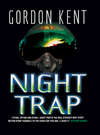Читать книгу: «Top Hook», страница 2
Trieste.
Alan joined his new command, an airborne detachment testing a new imaging system called MARI, while it was moving from Pax River via NAS Norfolk and Aviano, Italy, to join the USS Thomas Jefferson at Trieste. At first, it was like flying with strangers in a commercial jet; he was CO in name only, the movement already organized by the acting CO, a lieutenant-commander named Stevens. He was still in a rage over the change of orders, so his mood was not charitable, and he found himself making harsh judgments about the unit. Movement planning seemed to him substandard, the preparations made to work only because the junior enlisted worked their butts off and the senior enlisted were pros. The officers remained an unknown quantity—faces and handshakes at Pax River, and little else—and most of them had flown off with the det’s two aircraft and would be waiting on the Jefferson.
By the time they had reached Aviano, he had at least gotten control of the anger, and he knew many of the faces, if not the names. He had made common cause with the senior chief, and they had agreed on how to improve the last leg to the ship. Then he saw to it that he was the last man to leave Aviano; that way, he knew that everything was in train, and the senior chief would get everything to the Jefferson on schedule.
He showered for the first time in two days, changed into civilian clothes at the NATO bachelor officers’ quarters, and rented a car, which he drove a little too fast into Trieste before walking down to fleet landing. The Jefferson was anchored out beyond the main harbor entrance, washed by hazy sun and a faint Mediterranean mist that gave the port a friendly look and gilded the harshness of the modern waterfront.
Now almost resigned to the change of orders and buoyed by seeing a ship he knew and felt great affection for, his mood was raised further by seeing a familiar face: Chris Donitz, an F-14 jock who had been the senior LSO on his last tour.
“Hey, Doughnuts!”
He smiled because it was obvious that Donitz was glad to see him. In an instant, shipboard camaraderie embraced him, and he listened with a smile as Donitz told him that he was heading shoreward for two days of liberty and a meeting with his wife. Donitz was just beginning to rhapsodize about meeting her in Venice when Alan heard a voice at his shoulder.
“Sorry to interrupt, sir—are you Lieutenant-Commander Craik? Message at the SP shack, sir.”
He thought, Oh, shit, trouble with the det. He shook Donitz’s hand. “Better catch your train. Give my regards to Regina.”
“You bet. But Al, listen, uh—”
Alan waited, literally balanced on one foot to walk away.
“Uh, watch your step, okay?”
That got Alan’s attention, and he swung back. “What’s that supposed to mean?”
Donitz flicked a glance at his watch and shuffled his feet. “Just some scuttlebutt about why you’re here.”
“An intel guy commanding a bunch of aviators? I can deal with it.”
“Uh—sure. Hey, take care of yourself.”
If Alan had been in less of a hurry, he would have known that Donitz had more to say. As it was, Donitz gave a quick hand gesture, part salute, part wave, and hurried through the shore-patrol sentries and down the pier toward the railway station.
Alan strolled over to the shore-patrol office. A well-turned-out jg stood inside, his creased whites gleaming. He was from the ship’s company and didn’t recognize Alan in his civilian clothes, but as soon as Alan introduced himself, the man snapped to attention.
“Sir, the previous DO left a message that your wife came by about an hour ago and said she’d wait for you in, uh, Lettieri.” He had trouble with it, and the name came out as Letty-air-yury.
“My wife?” Rose was supposed to be in Newport, getting ready to graduate.
“That’s what the message says, sir. ‘Mrs Craik waiting for her husband at the Letty-air-iery.’”
“Lettieri?” Alan asked. Rose had never mentioned coming out. Of course, she wasn’t above surprising him—maybe even skipping her own graduation because he had to miss his, and they’d spend it together? Pick up a quickie flight from some friend in Transport—The thought of seeing her made him grin.
“Lieutenant, can you call the boat?”
“Yes, sir.”
“Get CVIC on the line and tell them that LCDR Craik is going to miss the 1700 brief, okay? Ask my Det NCOIC to see that my stuff gets to my stateroom.”
“Aye, aye, sir.”
“Now, where is the Lettieri?” He realized that he wanted to see his wife a lot more than he wanted to see his new command.
Alan’s eagerness to see Rose saved his life.
He followed the first part of the directions from fleet landing to the Riva Del Mandrachio, which ran along the waterfront, but the next turning eluded him. The landmark for this turn had been hotly debated by two sailors of the shore patrol, one arguing for a small church, the other for a bar, both making marks on the back of an advertising flier for a rock club. Alan saw several bars, but no church. He turned southeast, away from the waterfront, and headed into town, following the crude map and asking his way in his Neapolitan Italian, to the amusement of the Triestini.
The first local he asked pointed silently up the hill and waved Alan on. The second, as if to make up for the reticence of the first, offered to take him to a much better café, with a beautiful waitress, where the man himself was headed. Alan declined with courtesy, and the man shrugged. He gave directions rapidly, insisting that the Caffe Lettieri was on the Via San Giorgio. Alan followed the new directions as best he could.
Ten minutes later, he was deep in the old part of the city. He passed two of the city’s foremost Roman attractions and stopped, his temper flaring. The anger about his changed orders was just below the surface again, ready to flare at any provocation. He took a deep breath, looked at his map, and began to doubt that any members of the shore patrol had got this far from the fleet landing. Then, deliberately calming himself, he walked slowly until he found a cross street whose name appeared on his map and moved briskly south toward the Via San Giorgio. By then, the sunny day had turned gray, and thin Adriatic drizzle had begun to fall, and he was hurrying because he was afraid he would miss Rose.
He had to walk for more than five minutes to reach San Giorgio, and he realized by the time he reached it that he was directly above the fleet landing; indeed, the shore-patrol post was almost at his feet. The Caffe Lettieri was just ahead of him, a new, prosperous place with gold lettering on its façade. Rose’s choice of a rendezvous now made sense. He hurried to meet her, overtaking what he took to be a local man talking on a cellphone.
And then something struck him as out of place. A car had pulled up ahead of him, a big Audi 5000; the doors opened even before it had stopped, and as the doors popped feet and heads and hands appeared, fingers gripped around door frames, tension in eyes that darted back and forth at him and at the man with the cellphone. He knew those eyes, those tense hands: anticipating violence. That was his reaction, irrational, atavistic: memories of Africa and Bosnia, men going into action, high on it, super-alert.
And the man ahead of him was speaking Serbo-Croat, not Italian.
The man closed his cellphone with a snap and drew a pistol from his backpack, his eyes fixed now on the Caffe Lettieri. He looked just like the men coming out of the Audi. Almost dancing on the pavement in his anticipation.
They were going to hit the café.
The café in which his wife was waiting.
Alan lengthened his stride and stepped up behind cellphone man and took a last, careful look up the street at the car, his mind stretching the milliseconds as he tried to read what he was seeing. Weapons were appearing now from black leather jackets. One man was checking his fly, the second time he had done that: When did I see him do it? How did I notice? Another licked his lips. Looking here, there—predator’s eyes—
He took a deep, silent breath, gathered his anger and frustration and threw himself on the man with the pack, pinning his arms to his sides. His weight carried the man to the ground and the man’s head hit the pavement with a hollow thump, like a gourd meeting a cleaver. He heaved at the man, flipping him face up, gaining control of his limbs and taking the gun, a wrestling move that flowed from his past without conscious thought. He worked the slide on the pistol and rolled away, covering the head of the street, where one of the men from the Audi was opening fire into the front of the café.
Alan centered the sight picture on the man’s chest above the machine pistol he was using and fired twice, knocking the shooter back over the hood of the Audi. One of the other leather jackets fired back at him, walking the stream of bullets over the man he had tackled. Alan felt a blow to his leg and fired back without any attempt to aim. He raised his head and shot again on reflex, but the man who had fired at Alan had thrown himself into the car.
All Alan could think was that if it was a terrorist attack they still had time to throw a bomb, that Rose was still in danger. The car shrieked away from the curb, hitting the mirror of a parked van.
Two men were down.
Alan stumbled forward, his left leg striking oddly on the street. As he came to the corner, he saw that the whole front of the café had been shattered by bullets, and he threw himself forward into the café. He bellowed, “Rose!”
Two young men were bent over a body. Alan leaned past them, saw that the body was a man’s, and realized that he was still holding the gun. He shoved it in his waistband and went to the second body, clearly a corpse and with a pool of blue-black blood all around it. An older woman. Not Rose. Three other victims were on their feet, one staring at a bloody arm; a woman screamed and screamed; somebody slumped to the floor, his back tracing a red smear down the wall. He smelled gunpowder, blood, excrement.
Then his senses began to return from the overload of the shooting, and he heard the hooting of police sirens and more screaming.
“Alan Craik?” A woman’s voice behind him.
“Rose?” He turned and saw a woman who was definitely not Rose, a tall blond woman with a straight nose and Asiatic cheekbones.
“You are Alan Craik, I think.”
His leg was numb, and he looked down. The heel and sole of his left shoe had been shot away. He sat heavily on the floor, in a litter of broken glass. Reaction, fatigue. The sirens got closer. His foot had been cut by glass, otherwise was untouched, but his whole lower leg was numb. He focused on the woman in front of him. She looked like a wild animal caught between a need for food and a need to flee. His brain seemed to have been numbed, too: “Are you a friend of Rose’s?” he said, hearing the stupidity of it.
“I told them I was your wife so you would come.” Alan’s head snapped back to her, and his right hand moved toward the butt of the pistol in the small of his back. A trap? But the shooters are gone. What is she telling me?
“I must meet with you.”
Alan looked at her. She had neither blood nor glass on her and she looked like the cover of a glamour magazine, except for the fear in her eyes. She seemed to have no reaction to the screaming or the sirens or the blood, as affectless as a photograph, except for those eyes. He pulled himself up by grabbing a table that was puddled with coffee. His brain still seemed unable to make good sense. “Who are you?”
The sirens screamed outside. “Your next liberty port is Naples. Meet me there.”
“Why?”
She was already moving away into the crowd in front of the café. For the first time, she seemed at a loss. Once at the edge of the crowd, however, she stopped, now part of it, not part of the attack.
“Bonner,” she called. Then she was gone.
Bonner? He had to focus. Bonner was the name of the traitor who had got his father killed. Bonner was in a US prison. What did she mean, Bonner?
Police poured into the ruined café. He could make no sense of it, but his brain was clear enough now for him to know that what the woman had said had flung him back into a security investigation he had believed closed, and there was no way he could tell the Italian cops about it.
2
Newport and Utica.
For Rose, the new life started when she closed their rented house. She had loved living there, but now she was ready to go to the life she had dreamed of and worked toward for six years—Houston, the Space Center, astronaut training.
“Ready to go?” she said to Mikey, their seven-year-old.
“Let’s go!”
“You ready?” she said to the dog. The big tail banged against a wall.
“Well—let’s go!”
And without a backward glance she piled them into the 4Runner and started for her parents’ house in Utica, New York. The kids and the dog would be left there while she drove to Houston, then camped out in the house they had already bought there. Her children would adapt. They belonged to a happy family, except that every two or three years, one or both parents went to sea. Or into space.
“You feel abused?” she said to Mikey.
“I’m busy.” He was playing a computer game.
“That’s what I thought.”
The dog put his head over the seat from the back and licked her hair.
“You feel abused?” she said.
The dog wiggled all over.
“That’s what I thought.”
The trip was long, and Mikey got cranky, then slept; the baby howled; the dog threw himself on the floor and panted and gasped and whimpered. On and on, through Massachusetts and into New York, stopping to buy junk food and to piss and to walk the dog, then west along the Thruway and at last, as it was getting dark, to the little house in the Italian streets where she had grown up. Mikey, awake again, was eager.
“The first thing your grandmother will say is, ‘You’re later than you said.’”
“Grampa will tell her to shut up.”
Kids hear a lot.
“You’re late,” her mother said. “You said seven o’clock.” They kissed. “Dinner’s ruint,” her mother said.
“How’s my girl?” her father shouted, embracing her. He was a small man, wiry even in old age, a fair singer and a great ballroom dancer. “Shut up, Marie, she drove all this way, she done great.” He began to sing, Rosie, she is my posy—
“I’m starved, Ma,” she told her mother. “Just starved.” She wasn’t, but she knew her mother wanted to feed her. Singing, her father took her in his arms and began to dance her around the driveway. Rosie, she is my joy—
Rose winked at her father, and they went into the house with their arms around each other’s waist, Mikey holding his mother’s hand. It was only after another ten minutes of shouting and trading news that her mother said, “Oh, your father forgot, you got a phone call! It’s his business to tell you, I guess, but he forgot.” She drew herself up. “Not bad news, I hope.”
“Nah, nah, Jesus H. Christ, Marie! Give her a break, she just drove three hundred miles!” He turned to Rose.
“It’s some goddam military Mickey Mouse, I’d of told you tomorrow. Probably you didn’t dot the i on an exam paper.”
“She better call,” her mother said.
“Call tomorrow. Tonight’s for fun!”
“I’d of had her call the moment she got here.”
“Goddamit, Marie—”
Rose was laughing at them, because nothing bad could happen and she knew her father was right; it was some Mickey-Mouse nothing. Still, she knew her mother wouldn’t let it go until she called, so she asked where the number was and her father said by the phone. As soon as she saw the number, she knew it was her detailer’s, and her confidence that nothing bad could happen gave a little hiccup. There was a second number, as well, with “home” written next to it in her father’s precise writing.
Her confidence stumbled. Why did he want her to call at home? Or was that simply something that her father, a thorough man who had been a machinist and always worried about details, had asked for?
There was no privacy in that house. Even her father believed that if you needed privacy, you’d done something bad. She walked out to her car and got her cellphone from a box of office stuff that she’d shoved in the back, and she dialed the detailer’s home number from there, leaning her buttocks against the back end of the car and looking up and down the twilit, familiar street.
“Anders,” the male voice said.
“Hi, uh,—this is Lieutenant-Commander Siciliano. You called me?” Letting her voice go up in that crappy, little-girl way that women affected now. Christ, what was wrong with her? “Something wrong?” she said, not able to keep from saying it, not even able now to keep the anxiety out of her voice.
“Oh, yeah.” He sounded as if she had ruined his evening. “Thanks for calling.” She could hear papers moving, an insect sound. He had her file next to the phone! “Your orders have been changed.”
It made no sense to her. Then it made only trivial sense—the reporting date had been changed, or the time. Or she should go to a different office. But a warning voice was murmuring, Just like Alan, just like Alan—
“Your orders have been changed from Houston,” he said. He was going slowly, but she said, her voice steely now, “Give it to me.”
“The Houston orders were changed, I don’t have the reason here—now don’t shoot the messenger, okay, Commander—”
“Cut the crap. What are you trying to tell me?”
She heard a sigh, then words spoken to somebody on his end, something like I’ll be there in a minute. Then he said, “The orders to the space program have been canceled. You have a new set of orders to a command in West Virginia. The, uh—Inter-Service Word Processing Training Center. As XO. Look, I had nothing to do with this; I just got a priority message—”
She stopped listening.
Her life stopped.
She wasn’t going to astronaut training.
But why?
They had loved her in Houston. Her fitreps were great. Her physicals were perfect—the doctor’s own word, “perfect,” “You’re a perfect type for space.” She was perfect for space from the Navy’s PR viewpoint, too—combat experience, a mother, attractive.
The detailer was asking her a question. Fax—did she have a fax?
“No. No, they don’t have a fax here.” Her voice surprised her with its steadiness.
“Well, get a fax number there someplace so I can send you the orders. The reporting date’s been put back, so you’ve got a couple of weeks to, you know, adjust things.”
Adjust things? That did it!
“Like my household goods, which are all on the way to Houston?” She was angry now—her one great failing. Was that it, they’d washed her out because she got angry? “I just bought a fucking house in Houston, and my household goods are going there, and I’ve got two kids and a dog and nowhere to live!”
“Look, I’m sorry, I’m sorry, this isn’t my doing—!”
“Well, who the fuck’s doing is it?”
“I don’t know. This came from CNO’s office.”
What the hell did the Chief of Naval Operations care about her astronaut training? Jesus Christ! Just like Alan, and they didn’t explain to him, either—
“This isn’t fair. I want to appeal. This isn’t the way the Navy does things! Goddamit, I’ve followed the rules; I believe in the system; they can’t just—just—They’ve ruined my fucking career!”
He spent a minute or two talking her down, and the anger ebbed, turned into that steely calm again. Her mind was racing on, however, leapfrogging over anger and fear and hatred of the Navy, already seeking explanations, because there had to be an explanation, and when she found what it was, blood was going to flow.
“Okay,” she said. “Don’t jerk me around. I want answers.”
“Absolutely.” He wasn’t a bad guy. He knew that something, somebody, had decided to destroy her.
She turned the phone off, then back on, and tried to call Alan at the BOQ at Aviano, but he wasn’t there. Already on his way to Trieste, she thought, kicking ass as he went. Just as well—he had enough problems already.
She put the phone away and slammed the tailgate and stood there. It was so dark now that she hardly noticed her father at the corner of the car. How long had he been there?
“Rosie—what’re they trying to do to you? I’ll kill ’em, no kidding.”
She laughed. “Oh, Dad—” Then she threw herself on him and wept.
Начислим
+18
Покупайте книги и получайте бонусы в Литрес, Читай-городе и Буквоеде.
Участвовать в бонусной программе

















